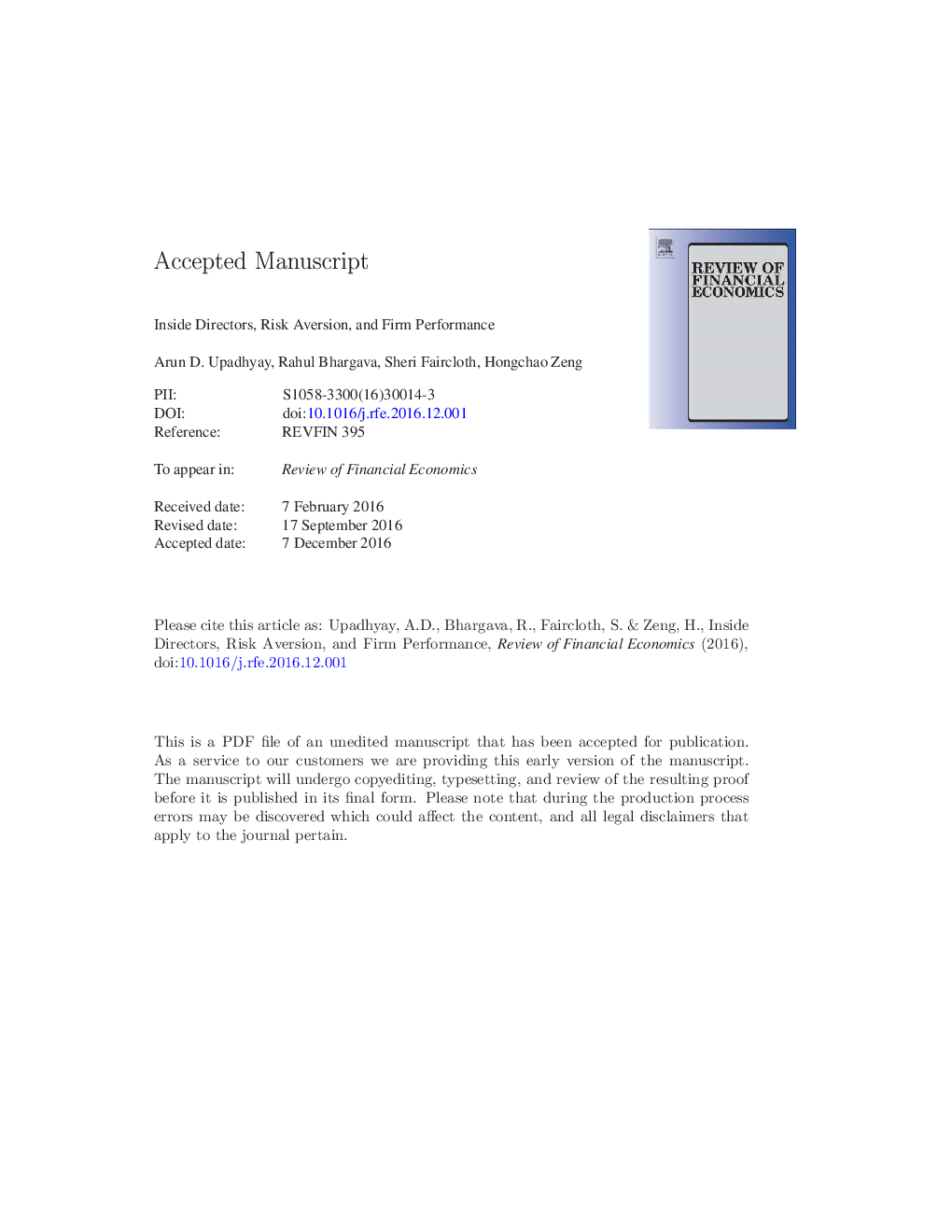| Article ID | Journal | Published Year | Pages | File Type |
|---|---|---|---|---|
| 5104427 | Review of Financial Economics | 2017 | 38 Pages |
Abstract
Prior literature provides mixed evidence on managerial risk aversion. Using a sample of 1737 large US firms from 1996 to 2005, we find a negative association between the insider ratio and firm risk. Upon further analysis, we show that firms with a greater insider ratio are also likely to have more conservative CEO compensation and investment policies. Analysis of CEO compensation policies indicates that firms with a greater insider ratio offer lower equity based compensation, lower vega and lower total compensation to their CEOs. Also, firms with a greater insider ratio tend to invest more in tangible assets such as plant and equipment and have lower intangible investments. Consistent with these boards instituting conservative policies, we find that firms with a greater insider ratio perform better when they operate in highly volatile environments. Overall, this study suggests that high-insider boards are more conservative in policy initiation and that such boards are valuable in firms with greater operating uncertainties.
Related Topics
Social Sciences and Humanities
Economics, Econometrics and Finance
Economics and Econometrics
Authors
Arun D. Upadhyay, Rahul Bhargava, Sheri Faircloth, Hongchao Zeng,
